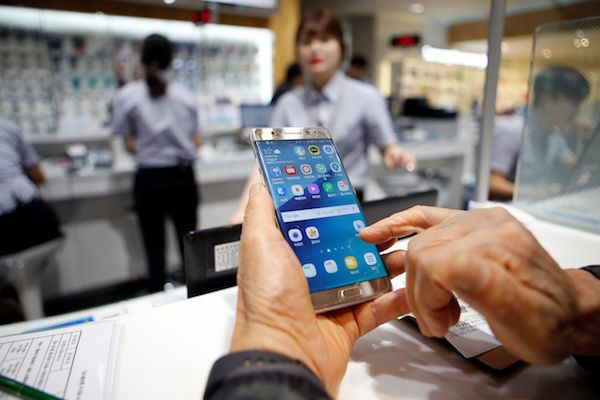Galaxy Note 8: Samsung Ditches ATL Batteries To Prevent Explosion Issue
Samsung is doing its best to prevent another fiasco to ensue following the release of its upcoming flagship phablet, the Galaxy Note 8. The precautionary measures include ditching long-time Chinese partner ATL, who supplied the fire-prone batteries of the currently defunct Galaxy Note 7.
On Monday, The Investor learned from South Korean language news site ET News that Samsung Electronics has opted to not use ATL batteries for its Note 8 phablet this year. Industry sources revealed that the new flagship phone will instead come with 3,300mAh batteries from Samsung SDI and Japan’s Murata Manufacturing.
Samsung’s decision does not come as a surprise anymore. The company has apparently moved away from the Chinese manufacturer following the massive recall of the Note 7 late last year. In fact, this is already the second time that Samsung has chosen to ditch ATL batteries for its flagship handsets. The first time was when the tech giant launched the Galaxy S8.
Samsung SDI is in charge of 80 percent of battery production for the Note 8. Murata, on the other hand, produces 20 percent of the batteries needed for the phablets. Sources indicate that the two manufacturers could continue to be the suppliers of batteries for next year’s Galaxy S9 flagship installment.
Sources say the relationship between Samsung and ATL already turned sour ever since the Note 7 fiasco. ATL has even complained about Samsung’s heightened quality control and surveillance on its suppliers. Nevertheless, the decision to ditch batteries from ATL for its flagship phones does not mark the end of Samsung’s decade-long partnership with the Chinese company.
“The two firms failed to narrow their differences on key issues such as handling of unused batteries and related compensation,” one industry source pointed out. “It may be possible for them to continue partnership on budget phones or some models for overseas markets, but flagship phones will not use ATL batteries.”
Although it would seem a big loss for ATL considering Samsung is a major player in the smartphone market, a source claims that this is actually not a severe blow to the Chinese company. The reason why this is so has to do with the fact that ATL is still the biggest smartphone battery maker. Besides, the company still has its largest client by its side, and it is none other than Samsung’s biggest rival, Apple.
Still, if ATL intends to keep producing batteries for Samsung’s flagship devices, it needs to step up its game. As of late, it is under immense pressure to upgrade its quality control testing equipment. “ATL appears to be under pressure about purchasing additional testing equipment under Samsung’s tightened quality control,” a source disclosed. Wccftech says it would be a poor business-related decision if ATL were to decline Samsung’s request.
Samsung is expected to unveil its Galaxy Note 8 flagship phablet this week. The device is expected to come with a 10nm FinFET SoC that’s coupled with 6GB of RAM. It is also rumored to come with a very large Infinity Display, a rear-positioned fingerprint sensor, an improved S Pen stylus and many other hardware and software upgrades.

© Copyright IBTimes 2025. All rights reserved.



















